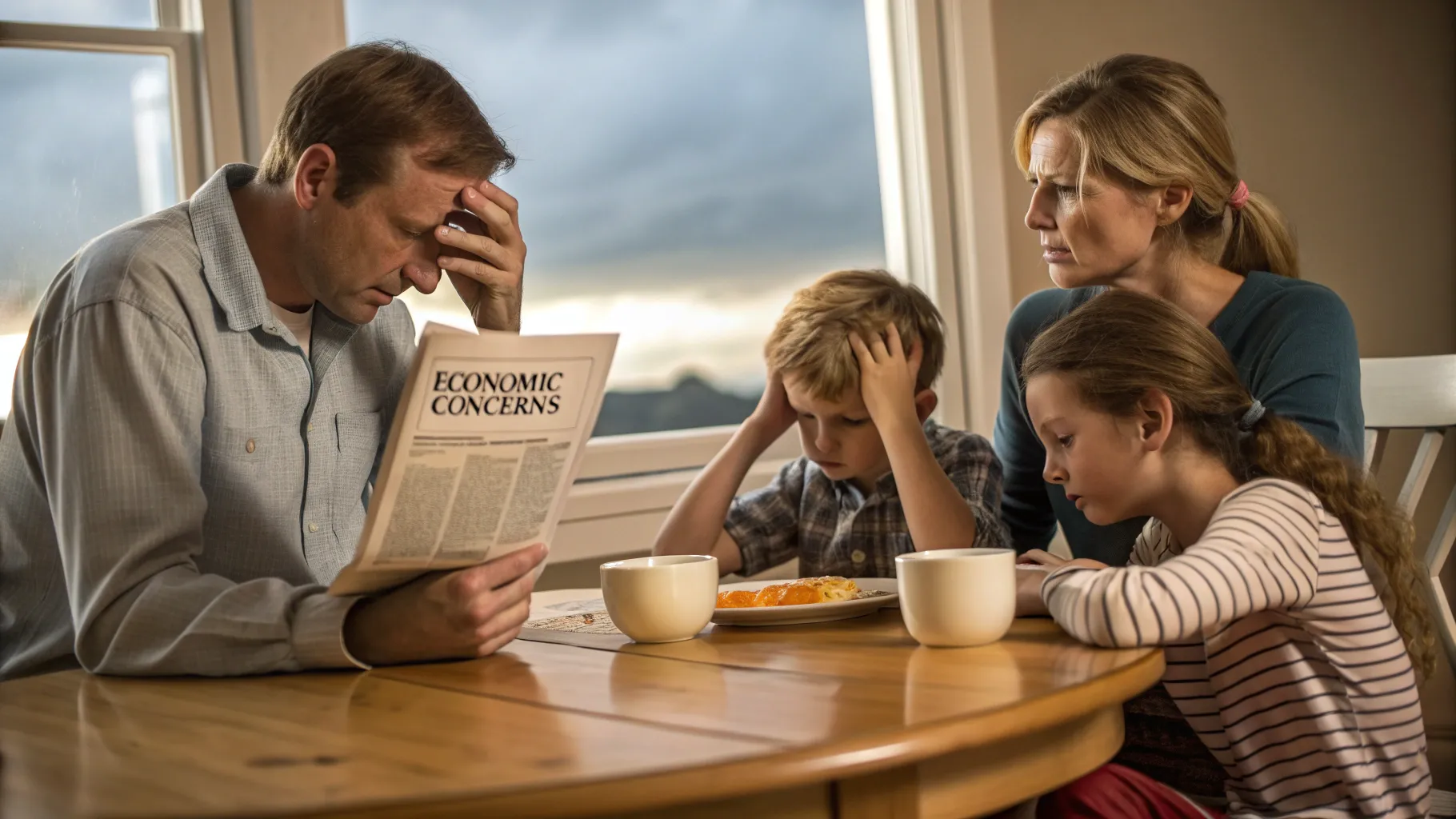
Economic anxiety continues to grip American consumers despite President Donald Trump’s recent decision to pause a significant tariff increase that would have affected dozens of countries. The move, which temporarily halted one of the administration’s most sweeping trade actions, has failed to alleviate public concerns about a potential recession and rising inflation.
Consumer sentiment surveys indicate that many Americans remain pessimistic about the economic future, with fears of an economic downturn persisting across various demographic groups. This ongoing anxiety suggests that the tariff pause alone has not been sufficient to restore confidence in the economy’s trajectory.
Tariff Decision and Its Limited Impact
President Trump’s administration recently announced a pause on what would have been massive tariff increases affecting imports from dozens of countries. The decision came after mounting pressure from business groups and concerns about potential economic repercussions during an election year.
The proposed tariffs would have raised costs on a wide range of imported goods, potentially accelerating inflation that has already strained household budgets. While the pause prevented an immediate price shock, it appears to have done little to address underlying economic concerns among the public.
Economic analysts note that the temporary nature of the pause may be contributing to continued uncertainty. “The fact that this is a pause rather than a cancellation means consumers are still bracing for potential price increases down the road,” notes one market observer.
Persistent Recession Fears
Despite 28 consecutive months of job growth and unemployment rates near historic lows, recession fears continue to dominate public economic sentiment. This disconnect between economic indicators and public perception has puzzled some economists.
Several factors appear to be driving these concerns:
- Lingering effects of post-pandemic inflation on purchasing power
- Rising housing costs and interest rates
- Ongoing global economic uncertainties
- Political messaging that has emphasized economic vulnerabilities
The persistence of these fears suggests that economic anxiety has become deeply entrenched in the public consciousness, making it resistant to policy adjustments like the tariff pause.
Inflation Concerns Remain Central
Inflation worries continue to rank high among consumer concerns, even as the rate of price increases has moderated from peak levels. Many households report that they have not felt relief from the statistical improvements in inflation rates.
“Grocery prices are still much higher than they were three years ago, even if they’re not rising as quickly month-to-month,” said a consumer interviewed in a recent survey. “The damage to our budget has already been done.”
The tariff pause prevented what could have been another inflationary shock, but it did not address the cumulative impact of price increases that have already occurred. Many consumers remain skeptical that inflation will return to pre-pandemic levels in the near term.
Political Implications
The persistent economic anxiety, despite the tariff pause, presents challenges for both political parties heading into the election season. For the administration, it suggests that more substantial economic measures may be needed to shift public perception.
Opposition politicians have continued to highlight economic vulnerabilities, focusing on the lived experience of consumers rather than macroeconomic indicators. This messaging appears to be resonating with voters who feel economically insecure despite positive headline numbers.
Economic sentiment has historically been a strong predictor of electoral outcomes, making the gap between economic data and public perception particularly significant in the current political climate.
As the election approaches, both parties will likely intensify their focus on economic messaging. The administration will emphasize positive indicators, while the opposition will highlight persistent anxieties about recession and inflation.
Whether further policy actions can shift these deeply held economic concerns remains to be seen. Still, the limited impact of the tariff pause suggests that public economic sentiment may be difficult to change in the short term.











Howie Jones
My name is Howie and I'm a Customer Success Manager at Calendar. I like to ensure our customers get the best experience using our product. If you have questions email me howie at calendar.com